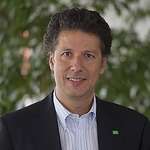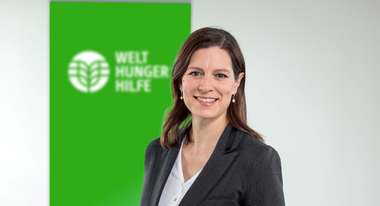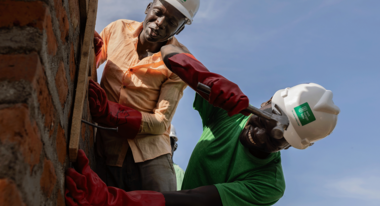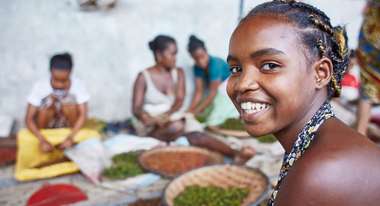20 Years of Welthungerhilfe in Cuba
Agriculture: entrepreneurial thinking for the future
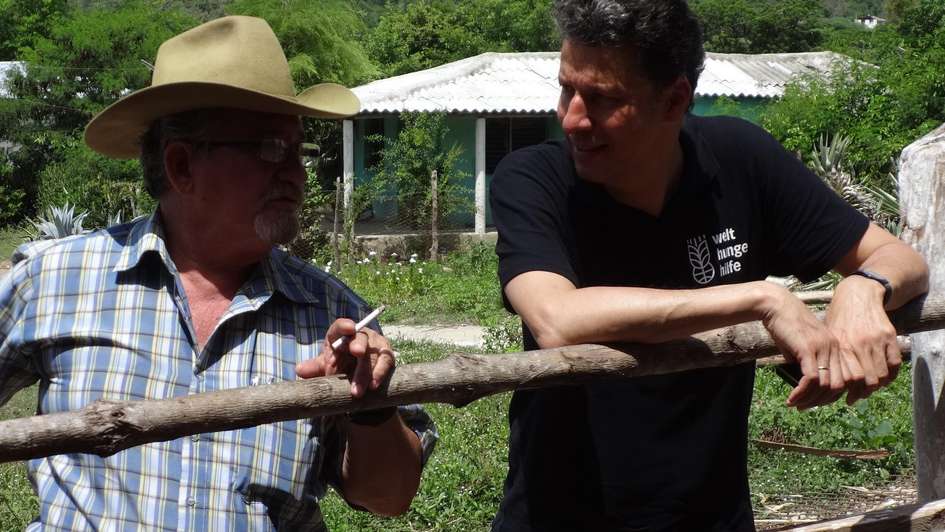
Michael Hofmann, Executive Marketing Director of Welthungerhilfe, reports on the successes our Cuban partners are celebrating in their projects, and on the reasons behind them. Born in Cuba himself, he had the opportunity to get a first hand impression of our project work during the 20th anniversary celebrations of Welthungerhilfe’s enagement in his Caribbean homeland.
Already before departure it was clear to me that this wouldn’t be a regular project trip. Cuba is both my birthplace and the homeland of my mother. 56 years ago, right in time with the end of the Revolution and Fidel Castro’s victory, I was born in its capital, Havana. Just one year later, my Cuban mother and my German father left the country. My last visit dates back 25 years, shortly before the downfall of the Soviet Union and the ensuing economic crisis that was labelled in those days by the Cuban government as the "Special Period in Time of Peace".
Nutrition is still a challenge for many Cubans
It was this crisis – but also the recurring hurricanes and their destructive effects – that brought Welthungerhilfe to Cuba in 1994. To mitigate the biggest hardships, urban agriculture projects were initiated that eventually became best practice examples. Nobody starves in Cuba anymore, but the nutrition situation of many Cubans is still quite bad. Many people live under very poor conditions. Especially those that have no access to foreign currency, be it through the tourism sector and through remittances from relatives abroad.
Many things on my trip across Cuba remind me of stories my German father kept telling from the post war period in Germany. Rationing books are still in place, housing conditions are dire and crowded and many Cubans have to devote a lot of time every day to organize food or hygiene items. Queuing up – be it at public offices, in front of the „Bodegas“ for subsidized food or for the coupons for charcoal or petrol – is an integral part of Cuban everyday life until today.
But since the severe crisis of the nineties there has also been tremendous progress, as I could witness in my visits to several projects both in the capital Havana and in the provinces Santiago and Holguín. Results of the economic liberalization under Raúl Castro are already visible everywhere. Three years ago the government decided a comprehensive reform package – and the clear self-empowerment approach that Welthungerhilfe always follows in its projects has put the people involved into a pole position within the whole liberalization process.
Entrepreneurial thinking for Cuba’s future
Together with its local partner organization ACPA, the Cuban Association of Animal Production, Welthungerhilfe is focused on consulting and supporting agricultural cooperatives. Most of them emerged as spin-offs from the necessary restructuring of large state-owned farms. In hindsight it proved to be a good and forward thinking approach not only to show these cooperatives more efficient production techniques, but to train them also in strategic and entrepreneurial thinking.
During my visit of the production cooperative "CPA Abel Santamaría", their long standing administrator confirmed this and explained in an impressive way: "Before, we tended just to complain about our hardships and to blame the state enterprise for everything. Now we have learned to better assess our strengths and weaknesses, to think in realistic possibilities and to shape those into concrete business plans." And to myself I thought: even the term "business plan" would have been unthinkable years ago …
The positive effects for the families depending from this cooperative are undeniable: their income has more than doubled and they have developed more sources of income. Formerly only focused on the production of meat and milk within strict targets of the central plan, they now already generate 40 per cent of their revenue from the processing of fruits (i.e. previously neglected mangoes). They are selling the fruit pulp now e.g. to ice cream factories. Well prepared by the previous trainings, the members can now benefit from the possibilities of the economic liberalization to full extent. And at the same time, their nutrition basis has diversified considerably.
Better thatched roofs will resist the next storm better
Recurring hurricanes have required several emergency relief interventions from Welthungerhilfe in the last years. Our colleagues are still helping the people affected by hurricane Sandy - which destroyed large parts of the Santiago province at the end of 2012 with brutal force – to repair the massive damages. During my visit to the region workers of the supported agricultural cooperatives proudly show me how they are repairing the damaged roofs with a new technique that should make the roofing more resilient when the next storms hit. Thanks to the trainings and the tools they received, their skills are now in high demand throughout the province. Other cooperatives as well as public institutions are seeking their services and paying for them – again another source of income.
Good cooperation even in difficult years
An especially moving experience for me at the end of this trip was the big celebration in Havana of Welthungerhilfe's 20th anniversary in Cuba. Even Welthungerhilfe’s now retired first country manager on the island, Peter Sasse, had travelled at own expense with his wife to the event. Without him, his strong personal commitment and his invaluable practical sense for possibilities within the system’s boundaries gained from his GDR background and previous Angola experience, many things wouldn’t have been possible in the difficult first years of the cooperation. In the reencounter with our Cuban partners tears flowed on both sides.
In typical Cuban fashion dancing was also part of the celebration, with hips moving among others to the song "Acabemos con el hambre del mundo" (let’s get rid of hunger in this world) which the band "Cubanos en la Red" had composed especially for Welthungerhilfe’s anniversary.
"No es fácil" (it ain’t easy) was a saying I heard throughout my journey across the island. Indeed many things remain very difficult in Cuba – despite the economic reforms. But I also got the clear impression that people are generating an incredible wave of personal initiatives and entrepreneurial ideas to tap into the new possibilities. I am really looking forward to see the success stories that the people in our projects will for sure tell when I return on my next visit, fully inspired by the saying: "No es fácil – pero se puede!" (it ain’t easy – but it is possible!).




